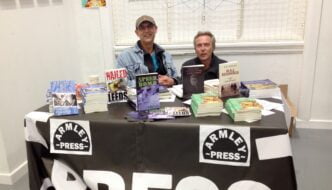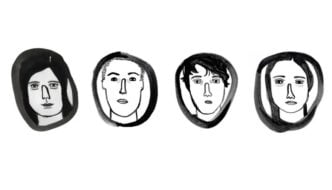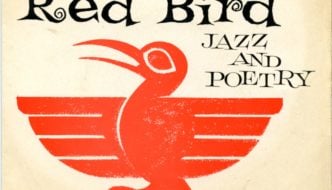The Remember Oluwale writing prize, deadline 6th March 2016
February 9, 2016

Photo credit: Teresa Grau Ros
The Leeds Big Bookend Festival is delighted to announce the Remember Oluwale Writing Prize, in partnership with Remember Oluwale and Fictions of Every Kind. Writers are invited to submit new short stories and poems which creatively respond to David Oluwale’s life and death for an anthology that reflects on David’s story, explaining its relevance today. Your story or poem can respond to David’s life and death, or take as its starting point the issues of marginalisation, exclusion, or kindness and hope.
David Oluwale arrived in Hull in 1949, from Nigeria, but after time spent in an asylum was eventually left homeless. In May of 1969 David was found drowned in the River Aire in Leeds. Two Leeds police officers were accused of his manslaughter and put on trial but were acquitted. During his time in Leeds, Oluwale faced a range of issues: mental ill-health, homelessness, destitution, racism, police brutality, and incarceration in prisons and hospitals. Now, today, David’s story has resonances with the murders of Trayvon Martin and Mike Brown in the US, which were the spring for the Black Lives Matter campaign.
Yet there was also extraordinary hope and kindness in David’s story: from the psychiatric nurse at High Royds Hospital in the 60s who tried to help him write home to his father in Nigeria, to the friends who tried to help him following his release from hospital.
The Remember Oluwale charity was formed in response to a call for a memorial in Leeds for David Oluwale by Caryl Phillips, whose book Foreigners: Three English Lives included an account of David’s life and death. The charity’s aim is to reflect both the city’s woeful neglect and persecution of David, and on the signs of hope contained within his story. Its flagship project is a Memorial Garden of Hope just beside the Leeds Bridge, where David was last seen in 1969. Work on the garden will start in April 2016.
The charity suggests that Leeds has to do more to address multiple issues of marginalisation and exclusion. Anyone, of any background, colour, or class, can and does experience many of David’s tribulations. In a world in which mass migration is promoted by war, environmental degradation, and acute economic inequality, and in a city where social problems are increasing as public expenditure falls, ‘David’s issues’ are interlocking and they are multiplying.
Entries must be a minimum of 10 words but no longer than 20 lines for poetry, or a maximum word count of 2,000 words for prose. The prizes are as follows: First prize, £100 to be awarded to 1 fiction writer and 1 poet each; second prize, £50 to be awarded to 1 fiction writer and 1 poet each; to 20 runners up, a copy of the Remember Oluwale Anthology containing their poem or story to be published by Valley Press in June 2016.
The closing date for entries is Sunday 6th March 2016. Full terms and conditions and details of how to enter can be found here. Entries will be judged by a stellar panel comprising the renowned Caryl Phillips, Marina Lewycka, and Ian Duhig.
Caryl Phillips grew up in Leeds and is the author of numerous books of non-fiction and fiction. His awards include the Commonwealth Writers Prize, the James Tait Black Memorial Prize, a Guggenheim Fellowship, and the PEN Open Book Award. He is Professor of English at Yale University. His latest novel, The Lost Child, was published in 2015.
Phillips said: “I was very aware of things such as race, violence and the city in which I was growing up. This killing of David Oluwale in the heart of ‘my’ city drove the issues home to me in a visceral manner. The Remember Oluwale Writing Prize is important because I think anything that encourages people to write imaginatively in this somewhat literal ‘reality’ age is to be encouraged. Furthermore, to ask them to imaginatively engage with both the personal and public history around the Oluwale tragedy is to suggest the ongoing relevance of those events in today’s world, and our need to constantly reevaluate where we are now in the light of past.”
Marina Lewycka was born in a refugee camp in Germany, and now lives in Sheffield. Her first novel, A Short History of Tractors in Ukrainian (2005), published when she was 58 years old, sold a million copies in thirty five languages. She has since written three more novels and her fifth, The Lubetkin Legacy, comes out in May.
She said: “Through writing, we can give a voice to people whose voices are not usually heard, and I hope the Remember Oluwale Writing Prize will encourage many more people to make this wonderful discovery. I think it’s a great honour to have a chance to read and comment on the work of people right at the start of their writing career.”
Ian Duhig is a poet based in Leeds. He is a former homelessness worker. His seventh book of poems The Blind Roadmaker is a PBS Spring 2016 Recommendation. A joint winner of a Shirley Jackson Award for short stories, Duhig has won the Forward Best Poem Prize, the National Poetry Competition twice and three times been shortlisted for the TS Eliot Prize.
Duhig said: “My first job in Leeds, the head of security was one of the police gaoled for brutalising David Oluwale. The story I first heard there was a factor in my choice of a career working with homeless people, something I’ve never regretted, a gift from David. What the David Oluwale Memorial Association represents seems vital to me and likely to become more important. Now I’m a writer, I like to see how they can inform good writing and this competition is a fantastic opportunity to encourage that, one I’m delighted to support.”
For more information about the Remember Oluwale Writing Prize, email Sarah Bradley at [email protected] or visit the Big Bookend website. Further information on David Oluwale can be found on the Remember Oluwale charity website, on Facebook, on Twitter at @RememberOluwale, or call Max Farrar, Charity Secretary, on 07753 987429. For more information about the Leeds Big Bookend visit: http://www.bigbookend.co.uk/, Facebook, Twitter at @bigbookend or call Fiona Gell, Coordinator, on 07742 861889. More information about Fictions of Every Kind can be found on Facebook.
Filed under: Written & Spoken Word
Tagged with: competition, poem, poetry, prize, short story, writing



Comments